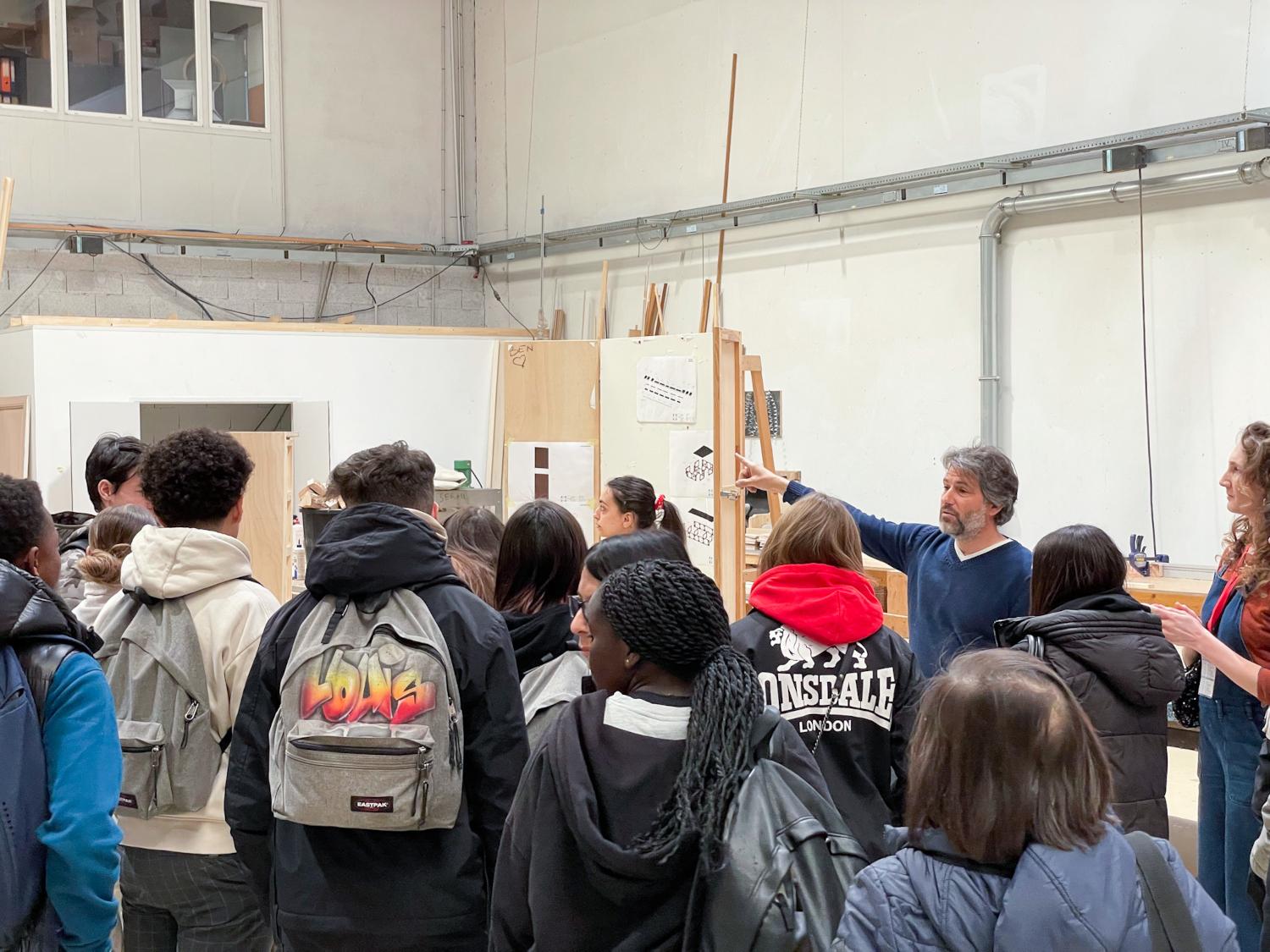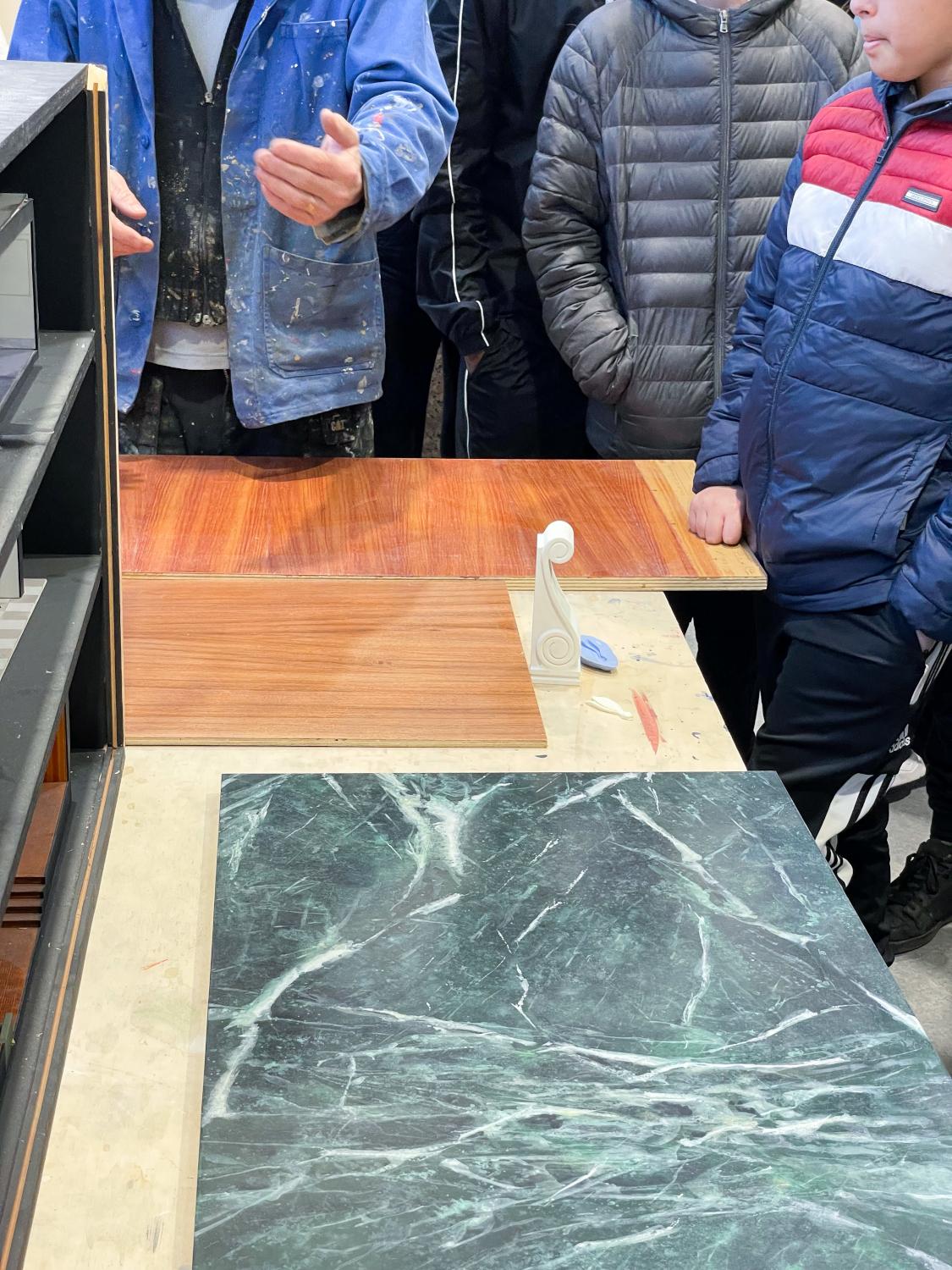A DAY FOR DISCOVERING THE PROFESSIONS OF THE BEHIND-THE-SCENES WORKERS AT THE FESTIVAL
Share
Thursday 16 March — The set-construction and costume production workshops of the Festival d’Aix-en-Provence are a hive of activity this morning, as the sixth edition of Open Day gets ready to be begin. Nearly 500 young people and adults, from groups supported by the Passerelles educational and socio-artistic department in their discovery and exploration of opera and the Festival, are expected here today to learn about the professions behind the physical creation of productions.
It’s 9.30 a.m., and the groups for the first half-day session are rushing into the large rehearsal studio for a brief introduction. The lights dim, and a short animated film tells them about the process of creating an opera: from the idea developed by an artistic team years before the production is actually performed, to the different stages of costume and set designs, the rehearsals, and the premiere. Participants are then given the go-ahead, with each group moving to the first meeting point of their profession-discovery tour. Throughout the morning, Festival technicians and craftsmen patiently, yet passionately, present the specialities of their fields.
In the carpentry workshop, the great flexibility of a particular type of wood surprises the onlookers. At the set design station, they learn that, in this profession, you need to challenge your assumptions, you have to experiment to achieve the scenographer’s desired result, have to ‘control the randomness as a group’, and make materials evolve towards more ecological channels, by getting rid of polystyrene, for example — although it is so easy to hollow out — and using cork instead. ‘Noise is our enemy’, we’re reminded at the next meeting point, while the mechanism of an enormous potter’s wheel developed for one of this summer's operas is set into motion — nothing must hinder the conductor's musical direction and the audience's reception of the music. Then it’s on to the props station, a scavenger’s paradise, for which flea markets must be trawled to find objects with a history and an aesthetic that meets the creative team’s artistic intention. Later, on stage, these objects will become veritable actors; they too will have a role to play.
The morning continues through the thirteen meeting points, and is enlivened by the participants’ questions, among them: How long does it take to create a wig from scratch? Why is natural hair preferred to synthetic hair? How do you become a member of one of the Festival's costume design teams? How much do these jobs pay? How can you give a second life to structures made for a specific production?
The half-day session comes to an end, and we receive the first feedback from the participants: for Salim, 26, who has set up his own non-profit and organises writing workshops for young people in a recording studio, it was probably the meeting point around sound and video that really caught his attention: he was captivated by the technical expertise and precision required. He points out the beauty of this collective work in which different trades come together and strive to achieve a common goal, yet the audience remains completely unaware of their work. For the students in Year 9 to whom we speak, the idea of starting nearly from scratch to create all the costumes and sets seems amazing — not to mention the models, the miniature reproductions, of the intended scenographies made upstream by the creative teams to present the project. Walid, who plans to go into theatre and to attend the Festival this summer, recognises the talent in all these professions and the complexity of the logistics that must be implemented. He was particularly drawn to the work of the prop makers and set constructionists, whose lifelike mouldings and trompe-l’œil also left an impression on the carpentry students from the vocational school. Although some of these students imagine they’ll pursue a career in architecture and design, they remain open to the idea of one day moving into the sector of the performing arts.
Thanks to Gaïa, Chloé, Théa, Melissa, Salim, Walid, Marwan, Camille, Sacha and Nathan for answering our questions.
The Passerelles department is supported by La Poste Foundation and CORUM L’Épargne

